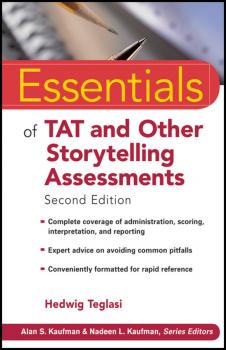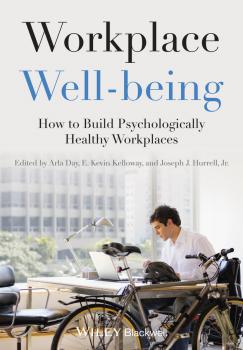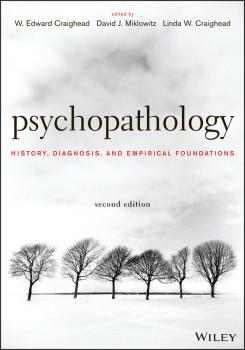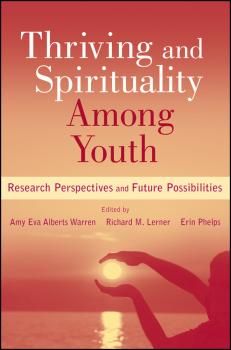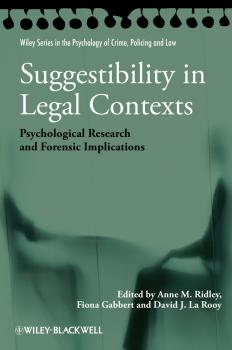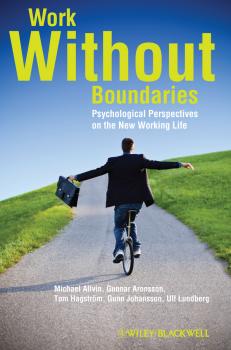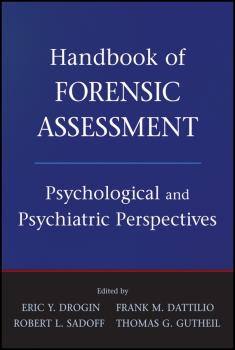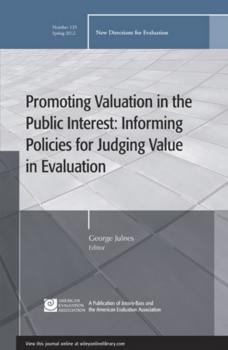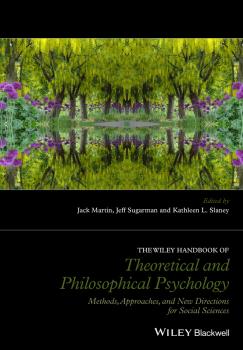ТОП просматриваемых книг сайта:
Общая психология
Различные книги в жанре Общая психология, доступные для чтения и скачиванияАннотация
Quickly acquire the knowledge and skills you need to confidently administer, score, and interpret a variety of storytelling techniques Storytelling techniques are a popular projective approach for assessing many aspects of a person's personality, such as cognitive processes, emotional functioning, and self-regulation. The broad spectrum of techniques includes the Thematic Apperception Test (TAT—the most widely embraced), Roberts-2, and TEMAS (Tell-Me-A-Story). To use these tests properly, professionals need an authoritative source of advice and guidance on how to administer, score, and interpret them. Written by Hedwig Teglasi, a leading researcher of the TAT and other storytelling techniques, Essentials of TAT and Other Storytelling Assessments, Second Edition is that source. Like all the volumes in the Essentials of Psychological Assessment series, this book is designed to help busy mental health professionals, and those in training, quickly acquire the knowledge and skills they need to make optimal use of major psychological assessment instruments. Each concise chapter features numerous callout boxes highlighting key concepts, bulleted points, and extensive illustrative material, as well as test questions that help you gauge and reinforce your grasp of the information covered. Fully revised and updated to reflect the current research supporting storytelling techniques, Essentials of TAT and Other Storytelling Assessments, Second Edition reflects the latest data and theory on scoring stories and includes new material on interpreting stories in reference to a person's abilities in cognition, emotion, relationships, motivation, and self-regulation. As well, the author provides expert assessment of the methods' relative strengths and weaknesses, valuable advice on their clinical applications, and several case studies to illustrate best practices for implementing the storytelling approach to personality assessment. Other titles in the Essentials of Psychological Assessment series: Essentials of Assessment Report Writing Essentials of PAI Assessment Essentials of 16PF Assessment Essentials of Neuropsychological Assessment, Second Edition Essentials of MillonTM Inventories Assessment, Third Edition Essentials of Rorschach Assessment Essentials of MMPI-2 Assessment Essentials of MMPI-A Assessment
Аннотация
Workplace Wellbeing is a complete guide to understanding and implementing the principles of a psychologically healthy workplace for psychologists and other practitioners. Grounded in the latest theory and research yet filled with plenty of case studies and proven techniques Introduces the core components of psychologically healthy workplaces, including health and safety, leadership, employee involvement, development, recognition, work-life balance, culture and communication Addresses important issues such as the role of unions, the importance of leadership, healthy workplaces in small businesses, respectful workplace cultures, and corporate social responsibility Discusses factors that influence the physical safety of employees, as well as their physical and psychological health Brings together stellar scholars from around the world, including the US, Canada, Europe, Israel, and Australia
Аннотация
Fully revised to incorporate DSM-5 criteria and informed by the most current research in its discussions of diagnosis and treatment Now in a second edition, Psychopathology: History, Diagnosis, and Empirical Foundations thoroughly explores psychopathology with contributions from leading scholars in psycho-pathology. The Second Edition offers an overview of various topics in the context of major changes included in the DSM-5. With new chapters on contextual factors affecting diagnoses and non-alcohol substance abuse, Psychopathology, Second Edition covers the history, theory, and assessment of anxiety disorders, posttraumatic stress disorder, mood disorders, schizophrenia, the psychotic spectrum disorders, eating disorders, borderline personality disorder, alcohol use disorders, psychopathy, sexual dysfunction, and sleep disorders. In addition, each chapter of the Second Edition contains: A description of the disorder, including brief history, case example, and epidemiological findings Empirical foundations of each disorder, including findings regarding neurobiological, behavioral, cognitive, and emotional factors Assessment of each disorder, including interviews, self-reports, neurobiological assessment, and clinical rating scales Brief description and evaluation of the current interventions for each disorder Summary and future directions Practical and thorough, this text is an essential reference for all mental health professionals and a solid introduction for students in psychopathology courses.
Аннотация
Thriving and Spirituality Among Youth empirically explores the connections between spirituality and positive youth development through the research of a set of scholars from the wide array of scientific fields including biology, sociology, and theology. This unique handbook shows how to foster positive development during adolescence, including youth contributions to families and communities in civil society. The material draws on research conducted with various populations including immigrant Hispanic, Chinese, Israeli, and Muslim-American youth. Social workers and mental health professionals will find a new, developmentally rigorous data base for a science of «adolescent spirituality.»
Аннотация
A comprehensive survey of the theory, research and forensic implications related to suggestibility in legal contexts that includes the latest research. Provides a useful digest for academics and a trusted text for students of forensic and applied psychology A vital resource for legal practitioners who need to familiarize themselves with the subject Includes practical suggestions for minimizing witness suggestibility in interviews Features topics that focus on suggestibility at each stage – from witnessing a crime through to trial
Аннотация
Drawing on more than a decade of inter-disciplinary research, this book provides a comprehensive overview of the available theories, concepts, data and research on new work organizations and the concept of ‘work without boundaries’. Explores a concept of work that is not restricted by traditional organizational rules like regular office hours, a single workplace, fixed procedures and limited responsibility Provides a comprehensive overview of the available theories, concepts, data and research on new work organizations Examines the shift of power away from organizations to make individuals accountable for their own employability and work Draws on over a decade of original research into ‘work without boundaries’ in which the authors are key authorities Brings together organization theory and work psychology with scholarship from related fields including sociology, social psychology, cognition and psychobiology
Аннотация
The first handbook to explore forensic assessment from psychiatric and psychological perspectives «The editors have assembled a magnificent collaboration between psychiatrists and psychologists to bring forth critical knowledge and insight to the core competency of forensic assessment. This handbook is essential reading and a comprehensive resource for both newly minted and seasoned forensic practitioners.» —Robert I. Simon, MD, Director, Program in Psychiatry and Law, Georgetown University School of Medicine «This long-awaited resource blows the dust off traditional standards, shakes the cobwebs out of our old ways of thinking, and shows the practical steps in producing work that will make sense to juries and withstand the most skillful cross-examination. . . . [T]here is no better resource.» —Kenneth S. Pope, PhD, ABPP, Diplomate in Clinical Psychology; coauthor, Ethics in Psychotherapy and Counseling, Fourth Edition «From preparation to collection to interpretation to communication of the results, this excellent, comprehensive treasure shows how to conduct forensic assessments. Each splendid evidence-based chapter is presented from the collaboration between psychologists and psychiatrists. It is a must-have resource for forensic experts as well as general practitioners or anyone wishing to understand standard of care in forensic assessment.» —Melba Vasquez, PhD, ABPP, 2011 American Psychological Association President The practitioner-oriented coverage in the Handbook of Forensic Assessment examines: The current state of psychology and psychiatry—including requisite clinical competencies, ethical guidelines, and considerations of multidisciplinary collaboration Various approaches to assessments in criminal and civil matters The principles of effective preparation, data collection, and interpretation, as well as communication for each special situation Topics including competence to stand trial, sexual offender evaluations, addictions, child abuse, and education Overarching practice issues, such as practice development, retention, compensation, consultation, and forensic treatment Includes sample reports that demonstrate the integrative potential of both psychology and psychiatry Incorporating a wealth of current and multidisciplinary research, the Handbook of Forensic Assessment is destined to become every mental health professional's most valuable one-stop reference for their forensic work.
Аннотация
Praise for Becoming a Therapist «This resource is filled with practical and personal advice, relevant stories, and examples, and reads more like help from a friend than a typical textbook.» —Roberta L. Nutt, PhD, ABPP, Visiting Professor and Training Director, Counseling Psychology Program, University of Houston «Ah, now this is the book I wish had been available when I entered the field. Tom Skovholt has defined the initial experiences and followed the process through to the culmination of the therapeutic experience in a truly great book. Becoming a Therapist is a major contribution to our field.» —Arthur (Andy) M. Horne, Dean and Distinguished Research Professor, College of Education, The University of Georgia; President-Elect, Society of Counseling Psychology «Becoming a Therapist's informal style is accessible and engaging and yet soundly grounded in evidence and in the wisdom Skovholt has developed through his career-long research on psychotherapists and their development.» —Rodney K. Goodyear, PhD, Professor, School of Education, University of Redlands; Emeritus Professor of Education (Counseling Psychology), University of Southern California Essential guidance for mental health professionals navigating the start of their helping careers Written for those entering a career in the helping professions, Becoming a Therapist: On the Path to Mastery explores the therapeutic career path for new practitioners, painting a vivid portrait of the novice therapist's journey. This practical book guides you in using the helping relationship to improve the lives of others, whether your chosen profession is in counseling, clinical psychology, social work, school counseling, addictions counseling, family therapy, medicine, community counseling, pastoral counseling, or academic advising. Destined to become the resource every new practitioner turns to again and again, Becoming a Therapist prepares you for the reality of what it means to be a beginning therapist, with relevant discussion of: The fifteen indispensable qualities of every mental health professional The unfolding practitioner self Self-care for burnout prevention and resiliency development The importance of culturally competent practice to practitioner expertise Practice, research/theory, and personal life: the practitioner's learning triangle The significance of peer relationships in the novice experience Steeped in author Thomas Skovholt's years of experience, Becoming a Therapist thoroughly and clearly illustrates the excitement, intensity, anxiety—and, ultimately, the satisfaction—you can expect as a helping professional.
Promoting Value in the Public Interest: Informing Policies for Judging Value in Evaluation. New Directions for Evaluation, Number 133 - George Julnes
Аннотация
Do you make evidence-based decisions when designing and conducting evaluations, and use methods validated by experience? Because of the growing importance of evidence-based decision-making for improving programs and policies, this issue examines methods selection: Which is better? How can one be improved? Are the results of the project worth the resources expended? and how that leads to confidence in value-based conclusions. It presents a constructive dialogue on valuing in evaluation, with the goal of developing a pragmatic approach for guiding method choice and for promoting methodology policies that support multiple approaches to valuation being employed in context-appropriate ways so as to serve the public interest. This is the 133rd volume of the Jossey-Bass quarterly report series New Directions for Evaluation, an official publication of the American Evaluation Association.
The Wiley Handbook of Theoretical and Philosophical Psychology. Methods, Approaches, and New Directions for Social Sciences - Jack Martin
Аннотация
The Wiley Handbook of Theoretical and Philosophical Psychology presents a comprehensive exploration of the wide range of methodological approaches utilized in the contemporary field of theoretical and philosophical psychology. The Wiley Handbook of Theoretical and Philosophical Psychology presents a comprehensive exploration of the wide range of methodological approaches utilized in the contemporary field of theoretical and philosophical psychology. Gathers together for the first time all the approaches and methods that define scholarly practice in theoretical and philosophical psychology Chapters explore various philosophical and conceptual approaches, historical approaches, narrative approaches to the nature of human conduct, mixed-method studies of psychology and psychological inquiry, and various theoretical bases of contemporary psychotherapeutic practices Features contributions from ten Past Presidents of the Society of Theoretical and Philosophical Psychology, along with several Past Presidents of other relevant societies

